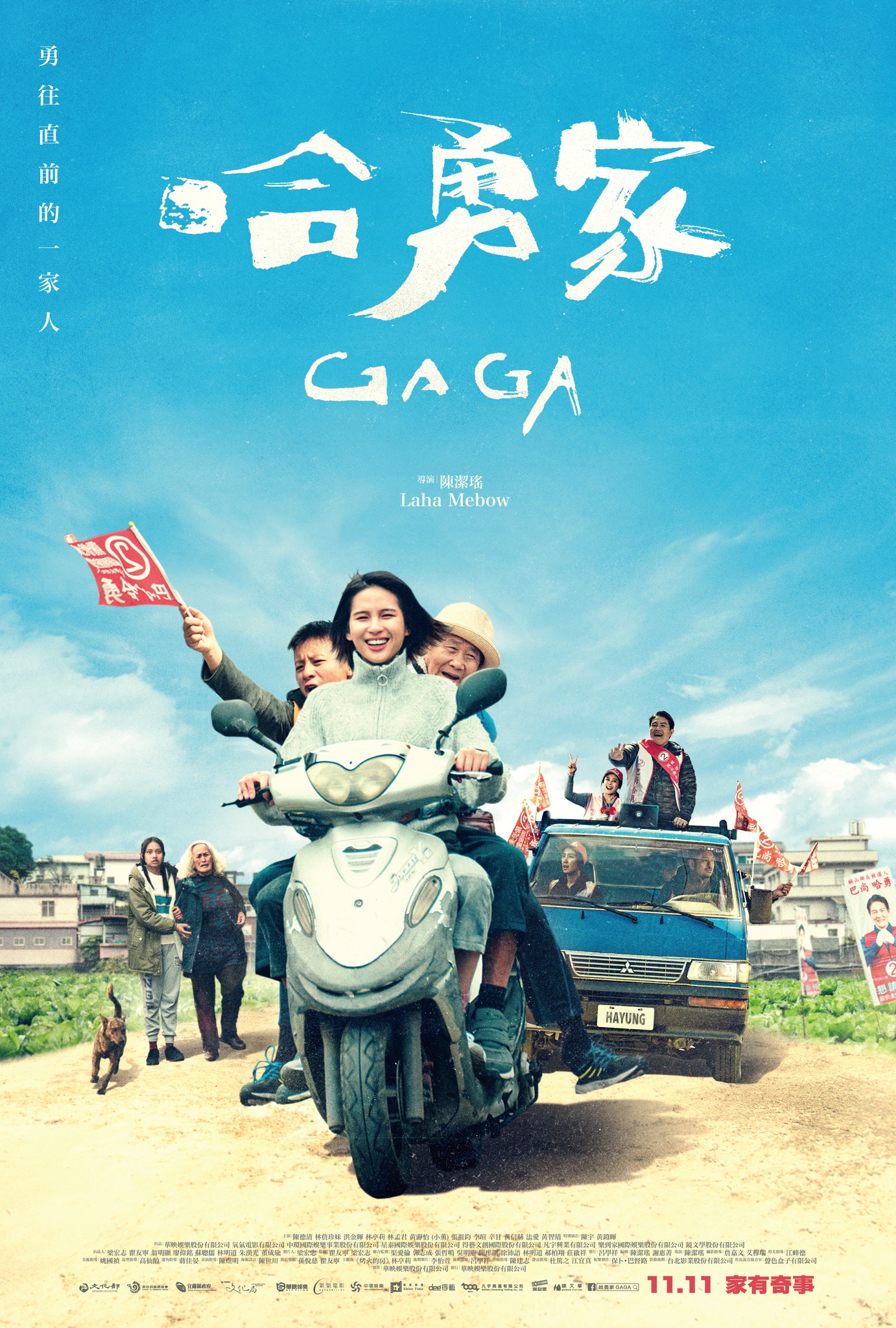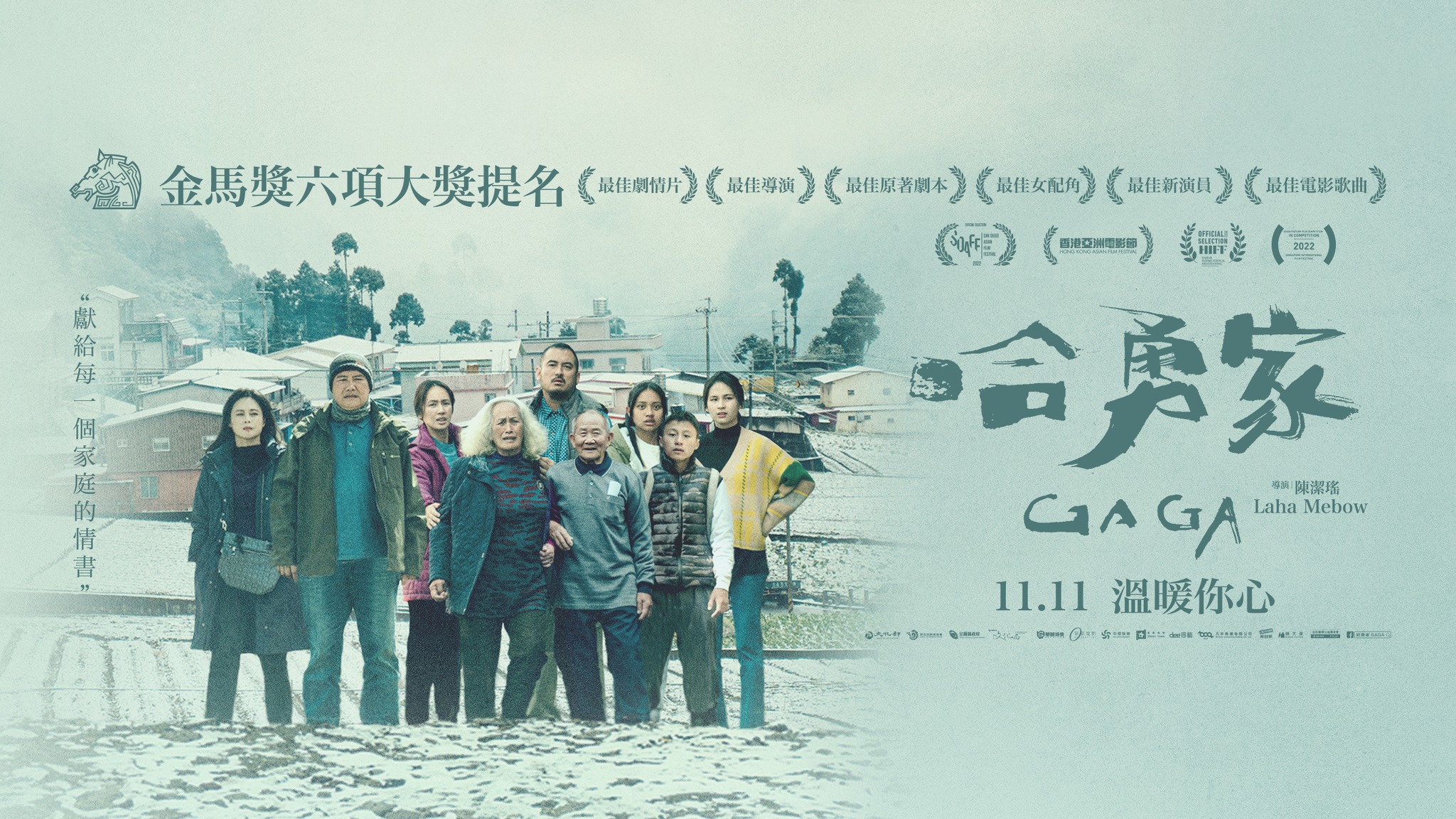by Brian Hioe
語言:
English
Photo Credit: Gaga/Facebook
GAGA (哈勇家), DIRECTED BY Laha Mebow, is not a perfect work, but it manages to be a candid intergenerational family drama nonetheless.
Gaga follows an Indigenous Atayal family. The events of the film are largely set off by the death of family patriarch Hayung. This takes place shortly after new zoning laws mean that the family will lose land that has been in their family for generations to neighbors.
Consequently, Pasang, the eldest son of the family, decides to run for township chief to try and reclaim the land. This takes place at the same time that his eldest daughter, Ali, seems to have become pregnant, and her new boyfriend from a working holiday in New Zealand, Andy, drops by for a visit.

Photo credit: Gaga/Facebook
The movie’s large cast means that not every character is sufficiently developed. Even if Pasang is a well-developed character and his relationship with his daughter and brother is sufficiently explored, some members of the cast do not see development. Pasang’s youngest son only comes off as a mischievous troublemaker in the film, but is not given further development as to his motivations.
Moreover, parts of the film’s plot do not entirely fit together. For example, Ali is initially depicted as frustrated by her grandmother’s being convinced that she is pregnant. Then, as it later transpires, she really is pregnant. The two events seem at odds with each other.
To this extent, the movie suffers from some imbalance in terms of its plot. The episode of the film involving Andy’s visit is likely too drawn out, distracting from Pasang’s electoral campaign. Andy appears to be of Han descent, but does not speak any Mandarin, and so he is forced to communicate with the family using English. Nonetheless, he is able to befriend the family. Although Andy participates in some of Pasang’s campaign events, the overall effect still detracts from the focus on Pasang’s run for township mayor.
Still, the point of the film is not any grand narrative, or to have any larger-than-life drama. Instead, what is presented is a ground-level examination of the Hayung family and its everyday struggles.
In this, the movie likely benefits from its use of untrained actors. The film’s shooting style, too, aims to avoid embellishment or dramatization, but retains a grounded perspective.

Photo credit: Gaga/Facebook
The subtext of the plot is the conflict between tradition and modernity. As he loses his land, Hayung bemoans the lack of gaga among the current generation of Atayal, referring to a shared ethos that once existed.
To this extent, Pasang participating in elections for township mayor is another imposition of an external cultural institution into Atayal life. That Ali meets her partner while on a working holiday abroad and he is not Atayal, too, seems to gesture toward the changing of the times.
Gaga manages to convey its plot naturalistically, while avoiding heavy-handed moralism in such a way that would cheapen the narrative and what it seeks to convey. In this, Gaga is still an accomplished film, even if perhaps a bit rough around its edges. For those interested in depictions of contemporary Taiwanese society, the movie is worth a view.



